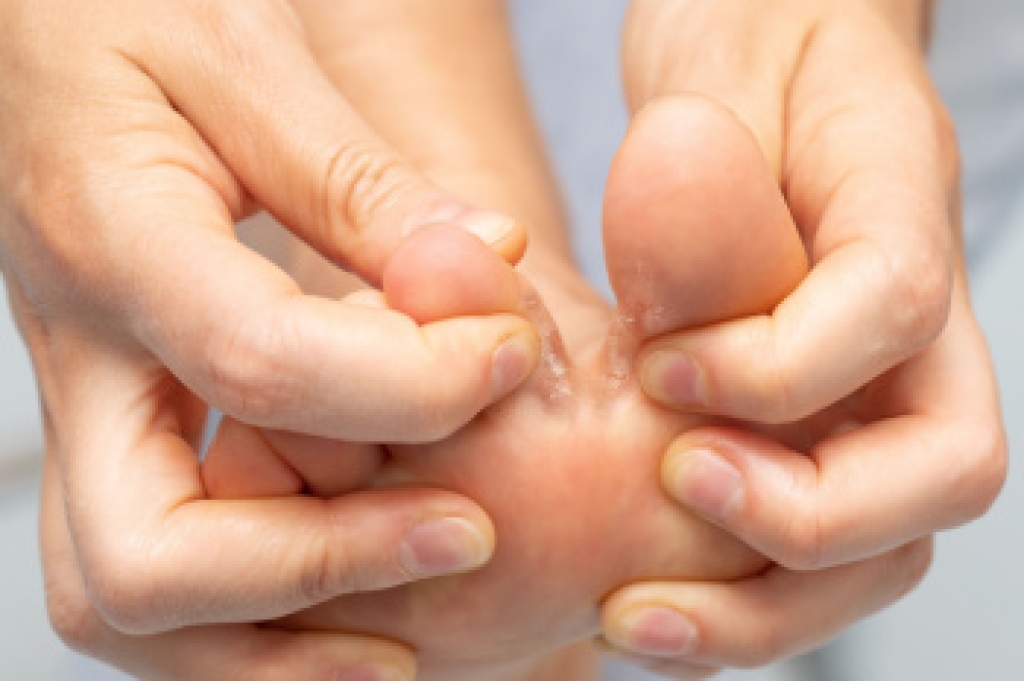
Athlete’s foot and fungal infections are common skin conditions that affect the feet and thrive in warm, moist environments. They are often caused by exposure to fungi in locker rooms, showers, and tight footwear. Symptoms include itching, burning, peeling skin, and cracking, especially between the toes or along the sole of the foot. In some cases, the skin can appear white, scaly, or soggy and may feel tender or painful when walking. Fungal infections can spread to the toenails or other areas, if left untreated. A podiatrist can begin care with a careful examination and may take a small skin sample to confirm the diagnosis. Treatment options include prescription topical or oral medications, hygiene education, footwear guidance, and follow-up care to prevent recurrence. Early treatment helps reduce discomfort and limits spread of the infection. If you have athlete’s foot, it is suggested that you schedule an appointment with a podiatrist.
Athlete’s Foot
Athlete’s foot is often an uncomfortable condition to experience. Thankfully, podiatrists specialize in treating athlete’s foot and offer the best treatment options. If you have any questions about athlete’s foot, consult with one of our podiatrists from New Tampa Foot & Ankle. Our doctors will assess your condition and provide you with quality treatment.
What Is Athlete’s Foot?
Tinea pedis, more commonly known as athlete’s foot, is a non-serious and common fungal infection of the foot. Athlete’s foot is contagious and can be contracted by touching someone who has it or infected surfaces. The most common places contaminated by it are public showers, locker rooms, and swimming pools. Once contracted, it grows on feet that are left inside moist, dark, and warm shoes and socks.
Prevention
The most effective ways to prevent athlete’s foot include:
- Thoroughly washing and drying feet
- Avoid going barefoot in locker rooms and public showers
- Using shower shoes in public showers
- Wearing socks that allow the feet to breathe
- Changing socks and shoes frequently if you sweat a lot
Symptoms
Athlete’s foot initially occurs as a rash between the toes. However, if left undiagnosed, it can spread to the sides and bottom of the feet, toenails, and if touched by hand, the hands themselves. Symptoms include:
- Redness
- Burning
- Itching
- Scaly and peeling skin
Diagnosis and Treatment
Diagnosis is quick and easy. Skin samples will be taken and either viewed under a microscope or sent to a lab for testing. Sometimes, a podiatrist can diagnose it based on simply looking at it. Once confirmed, treatment options include oral and topical antifungal medications.
If you have any questions, please feel free to contact our office located in Wesley Chapel, FL . We offer the newest diagnostic and treatment technologies for all your foot care needs.




